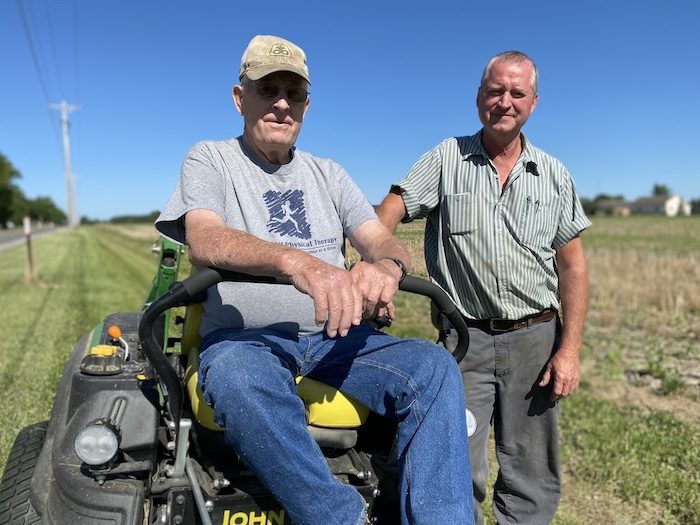Longtime no-tiller and strip-tiller Jeff Duling of Ottawa, Ohio, explains how he uses an old feed grinder to blend cover crop seeds in the video below.
Cover crops are a longtime staple in Duling's 1,300-acre operation. Jeff’s dad, Bob, started using them over 50 years ago.
“Of course, we didn’t have GPS back then. I remember as a kid getting lost in our field because the rye was so high,” Duling says.
Jeff carries on the tradition today and even kicked it up a notch. Stacks of cover crop seed bags fill almost every corner of his garage. His goal is to have every field covered year-round. Just like his dad before him, he’s found creative ways to get the job done efficiently.
“Fennig Equipment in Coldwater, Ohio, custom built a 17-row toolbar that follows my corn planter,” Duling says. “It seeds cover crops in between strips while also sidedressing UAN 28% with an EZ-Drop system at the same time."
Duling interseeds a mix of annual ryegrass (10 pounds), rape (2 pounds), sunn hemp (2 pounds) and radish (2 pounds) with the custom toolbar at V4-V5.
After wheat harvest in July, he uses a John Deere 30-foot air seeder to apply a mix of annual ryegrass, sunflower, crimson clover, radish, red clover and peas. When fall rolls around, he applies cereal rye to fields that aren’t covered.
Limiting his cover crop investment to no more than $20 per acre, Duling’s top priority is to scavenge nutrients. A recent experiment confirms he’s on the right track.
“We cut out a 2x2 square of waist-high cover crops and sent it to a lab,” Duling says. “I was floored by how many nutrients were there. Now I can see why some guys use cover crops to cut back on fertility.”
Immediately after planting corn and soybeans green, he terminates with herbicides using a John Deere 4730 sprayer. He also tried roller-crimping some fields, borrowing a 30-foot roller crimper from the Putnam County Soil and Water Conservation District.
“Roller-crimping worked out well for us,” Duling says. “I did 450 acres of roller crimping last year. But this year with thinner cover crop stands, I just couldn’t do it.”
Related Content
A 50-Year Tradition of No-Till in Northwest Ohio








Post a comment
Report Abusive Comment